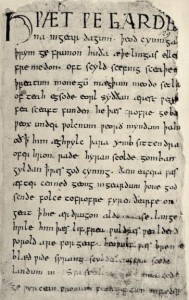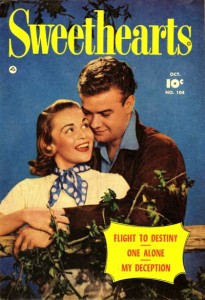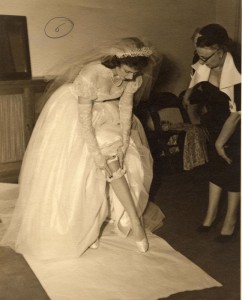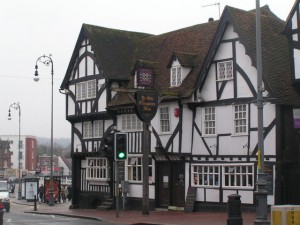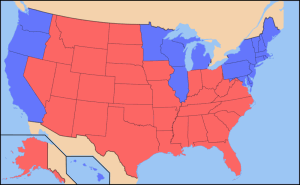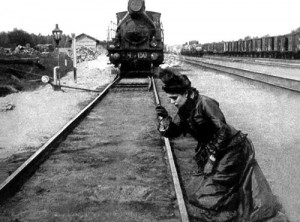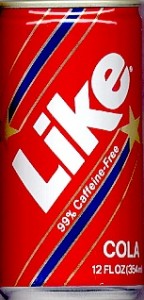 We dialect nuts scrutinize features of individual dialects, while perhaps ignoring features emerging in many dialects simultaneously. One of these is the meteoric rise of the phrase ‘be like‘ in many types of English. You may not recognize what these words mean, so examples of its conjugated forms may help:
We dialect nuts scrutinize features of individual dialects, while perhaps ignoring features emerging in many dialects simultaneously. One of these is the meteoric rise of the phrase ‘be like‘ in many types of English. You may not recognize what these words mean, so examples of its conjugated forms may help:
‘It was like, really dark outside.’
‘There’s like, maybe two or three of them.’
‘She tells me she’s wearing that blouse, and I’m like, are you kidding me?’
‘He was like, ‘I really need you to talk to me.’
You’ll notice several things about ‘be like.’ First, it’s typically used in narrative contexts or hypothetical narrative contexts. That is to say, it’s a function of storytelling. Second, it often becomes a quotative verb, meaning that ‘be like’ takes the place of ‘I said,’ ‘She said,’ ‘They say’ etc. It’s a very flexible term.
There is a fascinating body of sociolinguistic research on ‘be like.’ In 1982, linguist Ronald R. Butters noted one of the more interesting uses of ‘be like,’ as a way of revealing ‘unuttered thoughts.’* As someone who uses ‘be like’ quite a bit, I recognize this in my own speech. For example:
‘She says she wants to have a meeting, and I’m like, ‘didn’t we just have a meeting?’
Here ‘I’m like’ suggests what I was thinking rather than what I said. ‘Be like’ reveals the inner monologues of storytellers.
Research has also shown** that ‘be like’ is no mere American phenomenon, but becoming salient in the speech of British youth. Whether this indicates American influence I can’t say, but it’s clear that the construction is on the rise in several world Englishes. I can only speculate, of course, as to why this is the case. But for me, ‘be like’ is tremendously useful, although prescriptivist grammarians will (obviously) disagree.
I argue in favor of ‘be like’ because it implies an active relationship with one’s thoughts, feelings and statements. ‘Be like’ breaks down the boundaries between what you say, think and feel. ‘I thought it was scary’ or even ‘I thought, “it is scary”‘ do not have the same oomph as ‘I was like, this is scary.’ The latter suggest that I’m embodying that thought in a very personal way, that I’m simultaneously thinking, feeling and living it.
In a world that increasingly prizes immediacy, then, ‘be like’ is a very attractive tool in the linguistic box. The term dramatizes situations rather than simply repeating them, and allows us to access emotional states not easily captured by staid verbs like ‘I thought’ or ‘I felt.’
Still, that doesn’t quite answer the question: why is ‘be like’ so in vogue in so many parts of the English-speaking world?
*Butters, R. R. (1982). Editor’s note to Schourup (1982). American Speech 57, 149.
**Tagliamonte, S., and Hudson, R. (1999). “Be like et al. beyond America: The Quotative system in British and Canadian youth.” Journal of Sociolinguistics 3, 147–72.


